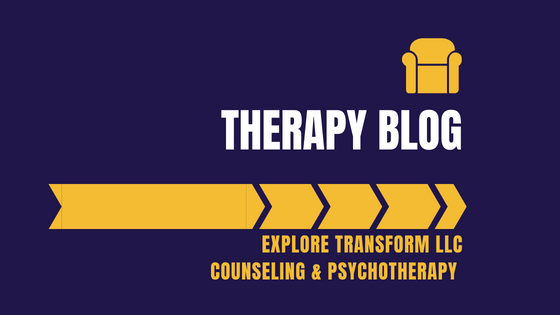|
What do COVID vaccinations, the assassination of JFK, and the moon landing all have in common? They have all been the subject of conspiracy theories. And there are plenty more. According to research carried out by Pew Research Center, more than half of Americans have heard of QAnon, one of the better-known conspiracy groups of recent times. For as many blog posts, updates on Instagram, and TikToks, there are as many variations in the perception of reality. This is a good and bad thing. On the one hand, it is healthy to think critically about the information we are given. On the other, we can end up straying too far from common sense, putting us and others in danger
A sense of belonging and identity Conspiracy theories, extremism, even intolerance, can all give someone a sense of belonging and identity. This is especially so if someone accepts those conspiracy theories, extreme views or intolerance from friends or family members. Our emotions serve as a significant motivator for our behavior, and if the choice is between rejection of those views or a sense of belonging, often we will choose a sense of belonging. As psychology professor Arie W. Kruglanski points out, one of the appealing factors of extremism is the “ideological narrative—the story a terrorist group tells to justify its actions,” justifying the actions according to “group values.” Group values can give someone a sense of belonging or identity, and that can be quite attractive when someone has low self-esteem, or they feel isolated. Our fear of uncertainty When we create conspiracy theories or we hold extreme views, we claim to know "the truth", whether or not we have the evidence to back it up. We prefer this false sense of certainty because our brains are hardwired to fear uncertainty. For our predecessors, uncertainty posed a significant threat: It meant that we might not survive the night, we might not know where we would find food or shelter, and we might not know whether that beast was going to devour us. In the twenty-first century, we still fear uncertainty with the same sense of mortal dread, and so some of us would prefer to cling to the certainty of conspiracy theories or extreme views, rather than embrace that uncertainty. This is especially true if we have survived trauma. Research shows that we are more likely to adopt black-and-white thinking to avoid the uncertainty we fear. A growth in technology Before the cell phone and social media, conspiracy theories might have been a problem confined to small ripples in social circles. But every post, like and retweet transforms these half-baked ideas into verified authority. We haven’t got the time to verify every last piece of information, so we rely on information from others, and, as a result, we can quickly drift from any semblance of reality. And if we were just talking about us adults, that’s one thing, but as Helen Lovejoy said in the Simpsons, “Won’t someone please think of the children!”. According to the United Nations, the internet is one of the main strategies used to recruit children to extremism, and the same can be said for conspiracy theories. Pandemics = Conspiracy theories, extremism, and intolerance It is no coincidence that we are examining conspiracy theories as we emerge from a pandemic. History shows us that conspiracy theories, extremism, and intolerance thrive during times of crisis and upheaval. Most pandemics followed this pattern, whether it was the cholera epidemics between the 1830s and 1860s or the 1918 influenza pandemic which killed fifty million worldwide. As Ervin Staub points out in The Roots of Evil: The Psychological and Cultural Origins of Genocide and Other Forms of Group Violence, acts of extremism such as genocides “often arise under conditions of acute societal uncertainty.” Distress tolerance, and rebuilding a sense of belonging and identity So what to do about all of this? If our fear of uncertainty is keeping us reaching for conspiracy theories, extremism and intolerance as much as our quick fix of social media, we need to learn how to reduce the distress associated with uncertainty. Your brain is an amazing flexible tool, so it can relearn as much of what it has learned already. This includes learning to tolerate uncertainty. Sometimes this can follow a basic exposure approach, where we identify uncertainty in our daily life, and then adopt a mindful approach as we breathe through the discomfort of it. That way, our brain can learn that this is survivable. You can also identify where you might have made assumptions to fill the gap of uncertainty, checking the facts and challenging some of those black-and-white thought patterns. In addition, you can identify other ways to develop a sense of belonging and identity, ways that are more constructive than conspiracy theories, extremism, and intolerance. I hope you find all of this helpful. If you have any questions, get in touch. Book online today for a free callback. Alternatively, you can email us at [email protected] or call us on +1 (201) 779-6917. Chris Warren-Dickins LLB MA LPC Explore Transform LLC Counseling and Psychotherapy in Bergen County, New Jersey www.exploretransform.com +1 (201) 779-6917 #ConspiracyTheories, #Extremism, #Intolerance, #Polarization, #MentalHealth, #Depression, #Anxiety, #Stress, #Self-Esteem, #Counseling, #Psychotherapy, #FindATherapist, #Ridgewood, #BergenCounty, #NewJersey, #teletherapy, #FindACounselor Comments are closed.
|
Due to the COVID-19 health crisis, we are only offering sessions online.
Our address is 143 E Ridgewood Ave, #1484, Ridgewood, NJ 07450
Telephone: +1-201-779-6917
Lead clinician: Chris Warren-Dickins LLB MA LPC
EXPLORE TRANSFORM LLC
Our address is 143 E Ridgewood Ave, #1484, Ridgewood, NJ 07450
Telephone: +1-201-779-6917
Lead clinician: Chris Warren-Dickins LLB MA LPC
EXPLORE TRANSFORM LLC
© COPYRIGHT 2024 CHRIS WARREN-DICKINS. ALL RIGHTS RESERVED. NJ LICENCE # 37PC00618700



 RSS Feed
RSS Feed
